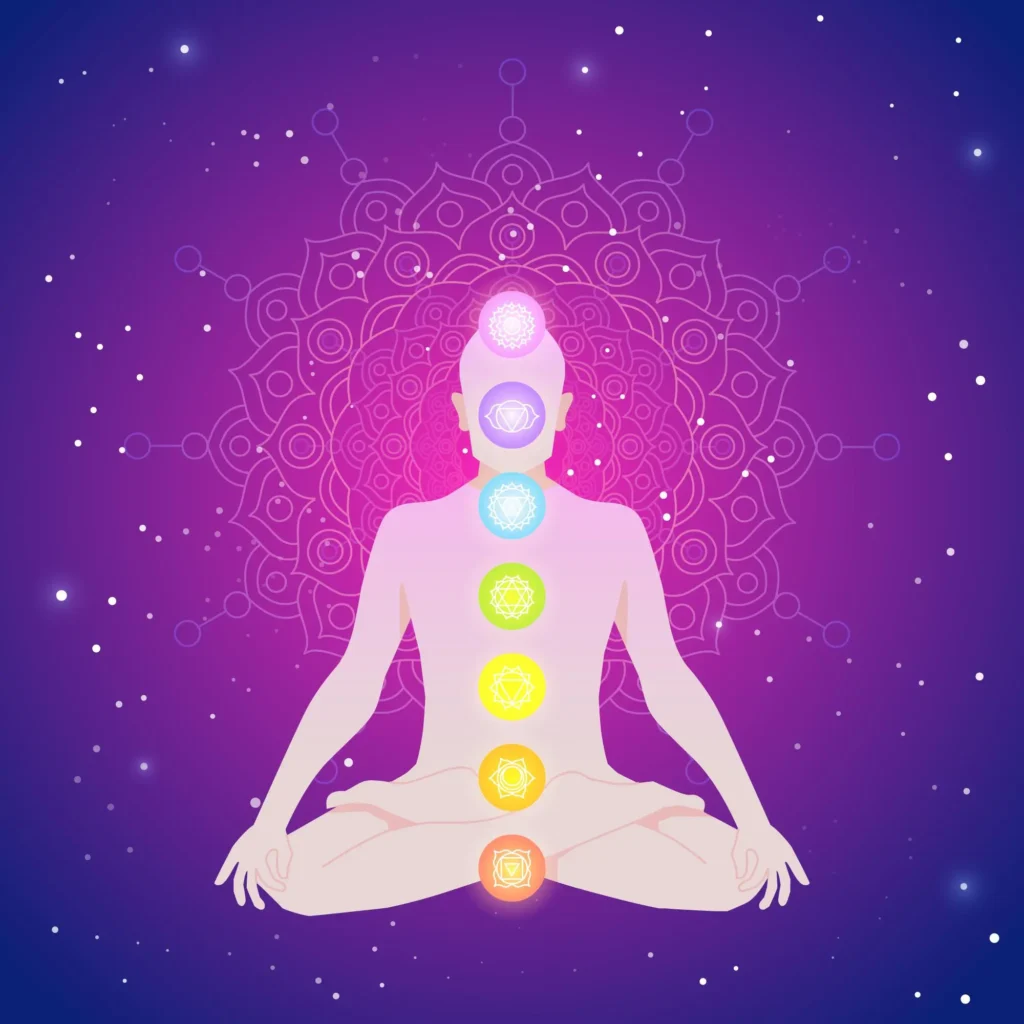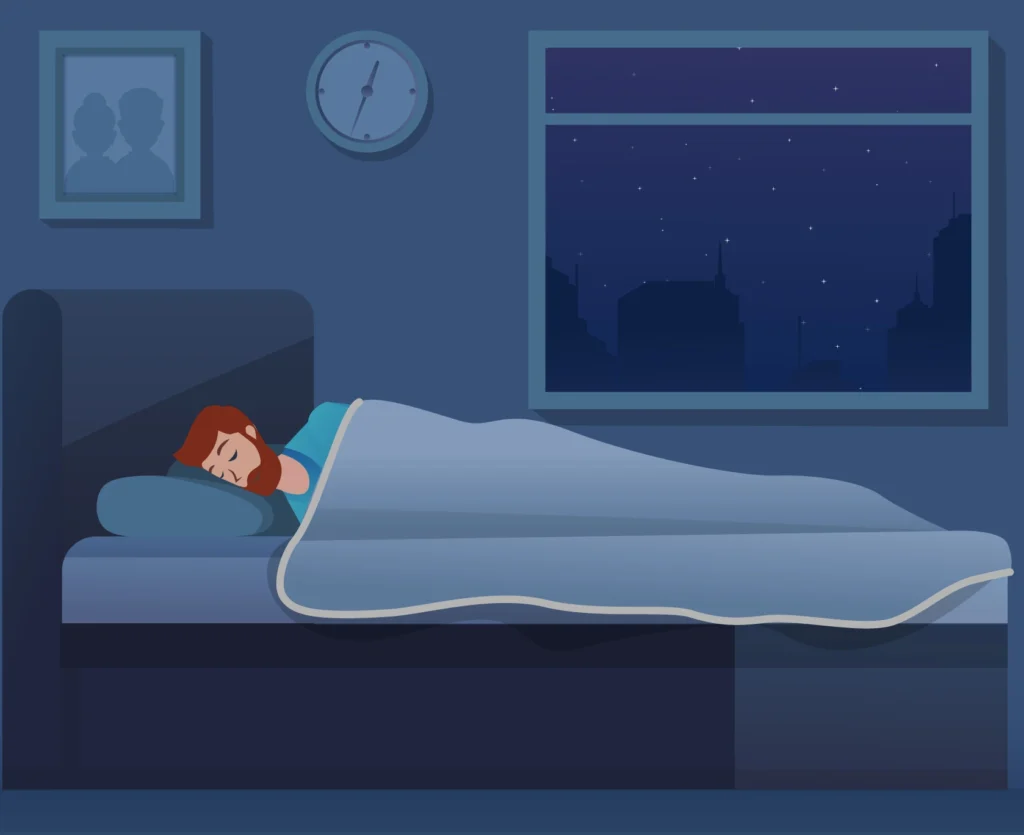Ayurvedic Sleep Remedies: Natural Ways to Improve Sleep Quality.

Ayurvedic Sleep Remedies: Natural Ways to Improve Sleep Quality.
Discussing Ayurvedic herbs, routines, and practices that promote restful sleep.
When the alarm goes off, a new day begins. Are you waking up feeling refreshed, energized, and eager to start your day – or are you feeling drowsy, irritable, and reaching for the snooze button?
In Ayurveda, sleep is considered one of the three pillars of life, along with diet and sexual energy. A good night’s sleep is essential for maintaining overall health and harmony in the body and mind.
According to Ayurvedic principles, sleep is not merely a passive state; it’s a dynamic process with distinct stages.

Importance of Sleep:
Sleep is essential to ensure good health and well-being. Good quality sleep rejuvenates the mind and body, while enabling effective functioning. It is also regarded as one of the most powerful tools to combat minor diseases and imbalances.
Sleep restores our ability to perform daily tasks. Sound sleep nourishes the body that’s why Nidra i.e. sleep is called as Bhutadhatri, because Nidra takes care and supports Prana of an individual like a mother.
In today’s fast paced stressful lifestyle surrounded by smartphones and other gadgets, many people complain about the quality of sleep and its effect on overall health parameters. Hence understanding all the parameters associated with sleep is very important for solving problems associated with sleep.
Physiology behind sleep according to Ayurveda:
Ayurveda views the human body as a delicate interplay of the three doshas: Vata, Pitta, and Kapha. When our sense organs are exhausted due to exertion or hard work, it increases Vata dosha in the body. Vata, in turn, carries Kapha dosha from its site and obstructs the Manovaha and Samjnavaha Srotas, the channels responsible for mental and sensory functions. Kapha dosha is predominated by Tamas (state of inertia), one of the three gunas or qualities described in Ayurveda. Tamas has a calming and grounding effect on the mind and body. This leads to a natural inclination towards sleep.

Four Stages of Sleep in Ayurveda:
Ayurveda, the ancient Indian system of medicine, offers a unique perspective on the four stages of sleep
- Prathamavastha (First Stage):
In this initial stage of sleep, as you’re falling asleep, your body and mind gradually start to relax. It’s like the body and mind are preparing for the journey of sleep. This stage corresponds to the Vata dosha, which is associated with the air and ether elements in Ayurveda. Vata represents movement and change.
To balance this stage, it’s essential to wind down before bed. You can practice calming activities such as meditation, deep breathing, or gentle yoga stretches. A cup of warm water can also help relax the Vata energy and set the stage for peaceful sleep.

- Dwitiyavastha (Second Stage):
In the second stage, you transition into a lighter, dreamless sleep. Your sensory awareness diminishes, and your body starts to restore itself. This stage corresponds to the Pitta dosha, representing the fire and transformation elements. It’s believed that the body detoxifies and repairs during this phase.
To encourage a healthy second stage of sleep, it’s important to have a light dinner at least a few hours before bedtime. Avoiding spicy and heavy foods can help reduce the excess Pitta energy. Also, maintaining a calm and peaceful sleep environment can further support the healing aspect of this stage.
- Tritiyavastha (Third Stage):
As you progress into the third stage of sleep, you enter the realm of dreams. It is characterized by vivid dreams and occasional movements. This stage is related to the Kapha dosha, associated with the earth and water elements. Kapha is responsible for structure and emotional well-being.
To balance this stage, it’s important to work on emotional processing and healing before bedtime. Practicing gratitude, journaling, or engaging in self-reflection can help address any emotional imbalances. Additionally, a light, Kapha-balancing diet and staying hydrated can contribute to a harmonious third stage of sleep.
- Chaturthavastha (Fourth Stage):
The fourth and final stage of sleep, known as REM (Rapid Eye Movement) sleep, is the deepest phase where intense dreams, rapid eye movements, and temporary muscle paralysis occur. This stage is considered dynamic, balancing all three doshas.
To promote a restorative fourth stage, it’s essential to ensure that you’ve created an environment conducive to deep sleep. This means minimizing disruptions, keeping your sleep space comfortable, and avoiding caffeine or heavy foods close to bedtime. Balancing your doshas through a well-rounded diet and lifestyle practices can also contribute to the rejuvenation that occurs during this stage
Types of Nidra –
Acharya Charaka has classified Nidra in the following manner according to causes.
- Tamobhava – caused by tamas guna
- Shleshmasamudbhava – caused by vitiated Kapha
- Manah-Sharirshramasaambhava – caused by mental exertion
- Agantuki – indicative of bad prognosis leading imminent death
- Vyadhyanuvartini – caused as a complication of other disease like Sannipatajajwara
- Ratri-Swabhavaprabhava – caused by the very nature of the night.
Sleep patterns associated with Prakruti:
In Ayurveda, sleep imbalances are classified according to the doshas — Vata , Pitta , and Kapha. These types of sleep disturbances—each with a distinct character, and a corresponding line of treatment.
As with many things in Ayurveda, one’s constitution and current state of balance will influence the types of sleep imbalances that are most likely to crop up. A Vata-predominant individual is more likely to experience Vata-type sleep disorders; Pitta-types will tend toward Pitta sleep complaints, and Kapha-types toward Kapha sleep issues.
Sleep patterns associated with Vata Prakruti:
Vata dominant individuals experience light, irregular, and short durations of sleep. Despite this, they would benefit from more restful sleep.
Common sleep-related symptoms for Vata types include teeth grinding, sleepwalking, and sleep talking.
Dreams are often airy in nature, with flying sensations being common. Due to being light sleepers, Vata types may easily wake during the night, facing difficulty falling back asleep.
Sleep patterns associated with Pitta Prakruti:
Pitta dominant individuals experience sound but often light sleep. They usually get a moderate amount of sleep, but may occasionally forgo sleep when preoccupied.
Dreams for Pitta types are known to be wild, fiery, and vivid. Falling back asleep after waking up in the night is not troublesome for them, unless their minds are overactive and stimulated.
Sleep patterns associated with kapha Prakruti:
Kapha dominant individuals enjoy deep and sound sleep, but their sleep may also be heavy and stubborn.
They tend to be less easily disturbed or woken during the night. Despite this, Kapha individuals may have a tendency to oversleep, even though they don’t require long periods of sleep.
Causes behind sleep disturbances:
Loss of sleep is caused by aggravation of Vata and Pitta, exhaustion of the mind, loss of tissues and injury to the body etc.
Insomnia is a very profound sleeping disorder, generally followed by day time sleepiness, low energy, lethargy, fatigue, irritability. It can also hamper your mental focus and daily tasks, and even develop into depression later onwards. The cases of insomnia are ever growing. Factors like stress, lifestyle habits and dietary choices have a severe impact on sleep and gradually develop into insomnia.
Now, a recent study on people in midlife finds that having a combination of sleep problems — such as trouble falling asleep, waking up in the wee hours, or sleeping less than six hours a night — may nearly triple a person’s risk of heart disease.
Head massage, massaging and trampling over the body are some beneficial remedies for maintaining good sleep.
Rules for sleeping during day time:
People who are excessively obese, who have excess Kapha and those who are habituated to the use of Sneha Dravyas (fats) are not permitted to sleep during day time.
The aged, children, the weak, the exhausted, those suffering from chest injuries, those afflicted with thirst, intense pain, indigestion, trauma, insanity and the ones who are habituated to sleep during day time. In such exempted cases, day time sleep brings about Dhatusamya (equilibrium of tissue) and the Kapha thus increased nourishes the body.
Ayurveda’s perspective on sleep imbalances:
Staying up late into the night may seem harmless, but it can disrupt our internal clock, known as the circadian rhythm. Exposure to Artificial light at night (especially blue light emission) from the devices, suppresses the production of melatonin, the sleep hormone, from the pineal gland, causing disruption of the circadian rhythm. Disruptions to the circadian system can have far-reaching effects on our health including sleep.
It increases Vata – pitta which again is responsible for depletion in sleep.
Person with Insomnia may experience the following list of symptoms. It may be one, two, or more. Everybody is different and their body’s needs are also different.
- Trouble sleeping
- Light sleep
- Waking up often and too early
- Daytime tiredness
- Restlessness during the day
- Increased levels of irritation and frustration
- Anxiety or Depression
- Unable to focus
- Constant worry
Recent studies have uncovered a significant connection between circadian dysrhythmia, the gut microbiome, and chronic illnesses like obesity, diabetes, and heart diseases. Our gut microbiota and its products follow a similar rhythm, and disturbances in this rhythm can disrupt metabolic processes, inflammatory pathways, and energy balance.
Natural ways to improve sleep quality:
- Finding Balance
While each dosha has a unique influence on sleep patterns and imbalances, quality sleep is equally important for all of us. Ayurveda can help us to discover our natural tendencies and to distinguish those from our particular vulnerabilities toward various sleep imbalances.
In addition, Ayurveda has a great deal to say about how to support balanced sleep in general. Often, simple adjustments to routine, exercise, diet, and lifestyle habits can have a profound impact on sleep.
- Set up an evening routine –
Your evening routine highly impacts the quality of your sleep. Following a good healthy routine and sleeping early ensures that you have adequate sleep and relaxes your mind. Habits that can make up a good evening routine are light exercise, light food, early dinners, listening to soothing music, and undertaking a digital detox.

- Focus on peaceful mind –
A restless mind affects the quality of sleep. Wandering thoughts and anxiety greatly impede sleep quality. Some basic yoga and breathing exercises are recommended to relax and rejuvenate the mind.
If your mind is way too restless and causing anxiety, you can follow some mind relaxing techniques like chanting mantras and pranayama.
- Perfecting your Physical Environment –
- Create a restful environment before sleeping to calm the mind and body.
- Keep away from electronic devices at least 2-3 hours before you actually sleep. These gadgets drastically impact your mind and nervous system and can disturb your sleep pattern. They should be switched off while you sleep because they emit radiation which is harmful for the nervous system.
- Keep your surroundings cool and clean to invoke freshness
- Maintain a dark and quiet environment before sleeping

Herbal medicines and panchakarma:
Ayurveda recognizes a wide variety of herbs as effective remedies for sleeplessness. Brahmi, Ashwagandha, Shankhapushpi, Jatamansi, and Vacha are just a few of the more well-known ones.

Shirodhara is one of the most suggested Ayurveda treatments for insomnia. Abhyanga is a full-body massage using therapeutic oils. This massage helps to balance the doshas, promote relaxation, and improve sleep quality. Pada Abhyanga involves massaging the feet with warm oil. All these techniques along with lifestyle modifications will prove helpful for maintaining good Quality of sleep.
In terms of our overall health, sleep is actually on par with eating. It is essential to both physiological and cognitive functioning. In fact, in today’s world, where sleep disorders abound, modern medicine is embracing many of Ayurveda’s lifestyle strategies in the treatment of sleep disorders. Adopting a healthy lifestyle is the key associated with good sleep.

Author: Dr. Gayatri Kulkarni – Mulye
MD ( Ayurved)
Special proficiency in Gynecological disorders and Infertility.
Practicing since 12 years at Orthoved hospital, Dombivli,


